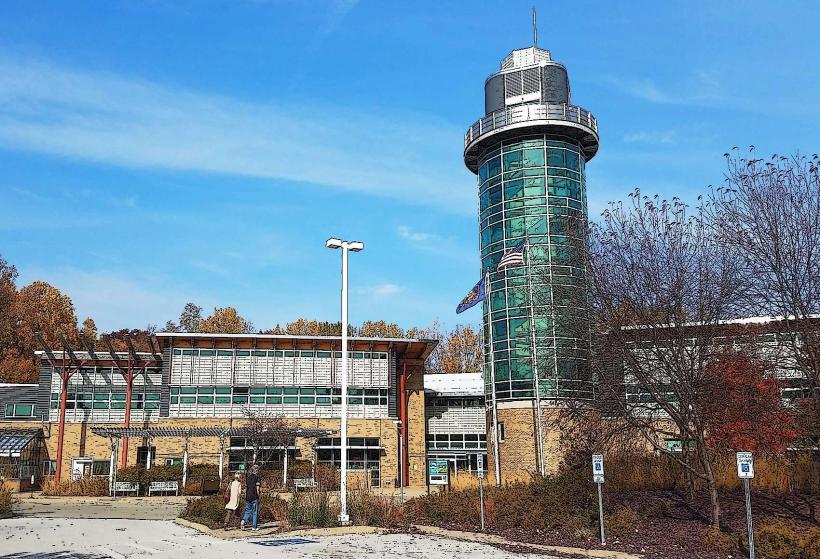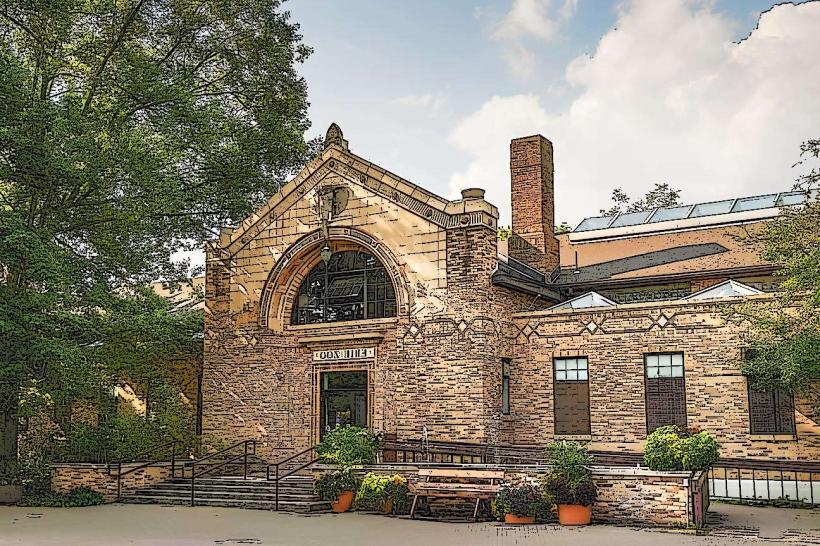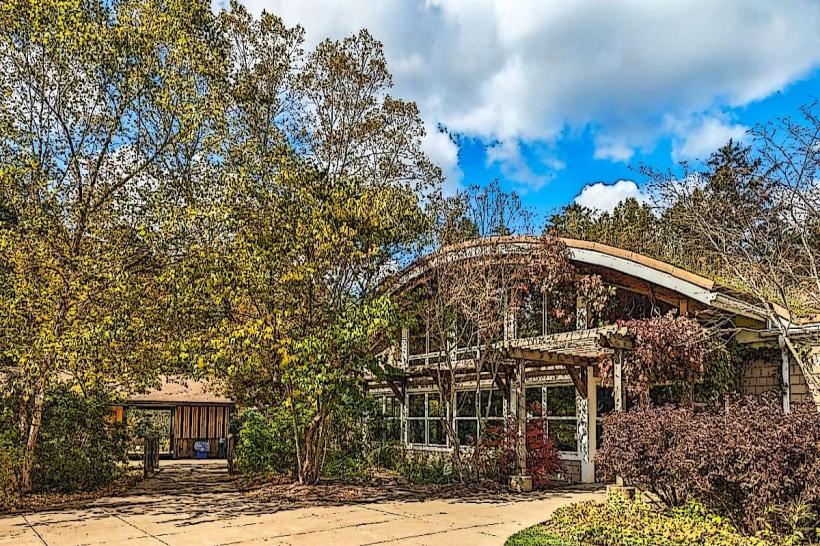Information
Landmark: Watson-Curtze MansionCity: Erie
Country: USA Pennsylvania
Continent: North America
Watson-Curtze Mansion, Erie, USA Pennsylvania, North America
The Watson-Curtze Mansion is a historic house museum located in Erie, Pennsylvania.
It is a significant example of Victorian architecture and a repository of local history.
Visual Characteristics
The mansion is a three-story structure constructed primarily of red brick. It features a prominent corner turret with a conical roof and decorative stone quoins. The roofline is punctuated by gables and dormer windows. Architectural elements include a wraparound porch supported by turned columns and a porte-cochère. The exterior colors are predominantly the natural red of the brick, with contrasting white trim around windows and cornices.
Location & Access Logistics
The Watson-Curtze Mansion is situated at 121 West 6th Street in Erie, Pennsylvania. This location is approximately 1.6 kilometers (1 mile) west of the Erie downtown core. On-site parking is available for visitors. Public transport options include Erie Transit bus routes that service West 6th Street; specific route numbers should be verified with the transit authority for current schedules.
Historical & Ecological Origin
Construction of the Watson-Curtze Mansion was completed in 1891. It was designed by architect George A. Butler for industrialist John J. Watson. The original purpose was to serve as a private residence for the Watson family. The mansion later became the property of the Curtze family before being acquired by the Erie County Historical Society.
Key Highlights & Activities
Guided tours are offered, detailing the mansion's architecture and the lives of its former inhabitants. Visitors can explore the preserved period rooms, including the parlor, dining room, and bedrooms. The museum also houses exhibits related to Erie's industrial and social history.
Infrastructure & Amenities
Restrooms are available for public use within the museum. Limited shaded areas are present on the grounds. Cell phone signal (4G/5G) is generally available in the vicinity. Food vendors and dining establishments are located within a short walking distance in the downtown Erie area.
Best Time to Visit
For optimal interior lighting and photography, visiting during daylight hours is recommended. The best months for comfortable weather for exploring the exterior and surrounding grounds are typically May through October. No specific tide requirements apply to this inland location.
Facts & Legends
A notable historical detail is that the mansion was built using materials and craftsmanship reflective of the wealth generated by Erie's industrial boom in the late 19th century. Local lore sometimes mentions unexplained occurrences within the house, though these are not officially documented.
Nearby Landmarks
- Erie Maritime Museum (0.8km Northeast)
- Presque Isle State Park (4.5km Northwest)
- Warner Theatre (1.2km East)
- Colonial Dames Chapter House (0.3km Southwest)
- Bicentennial Tower (1.0km Northeast)









